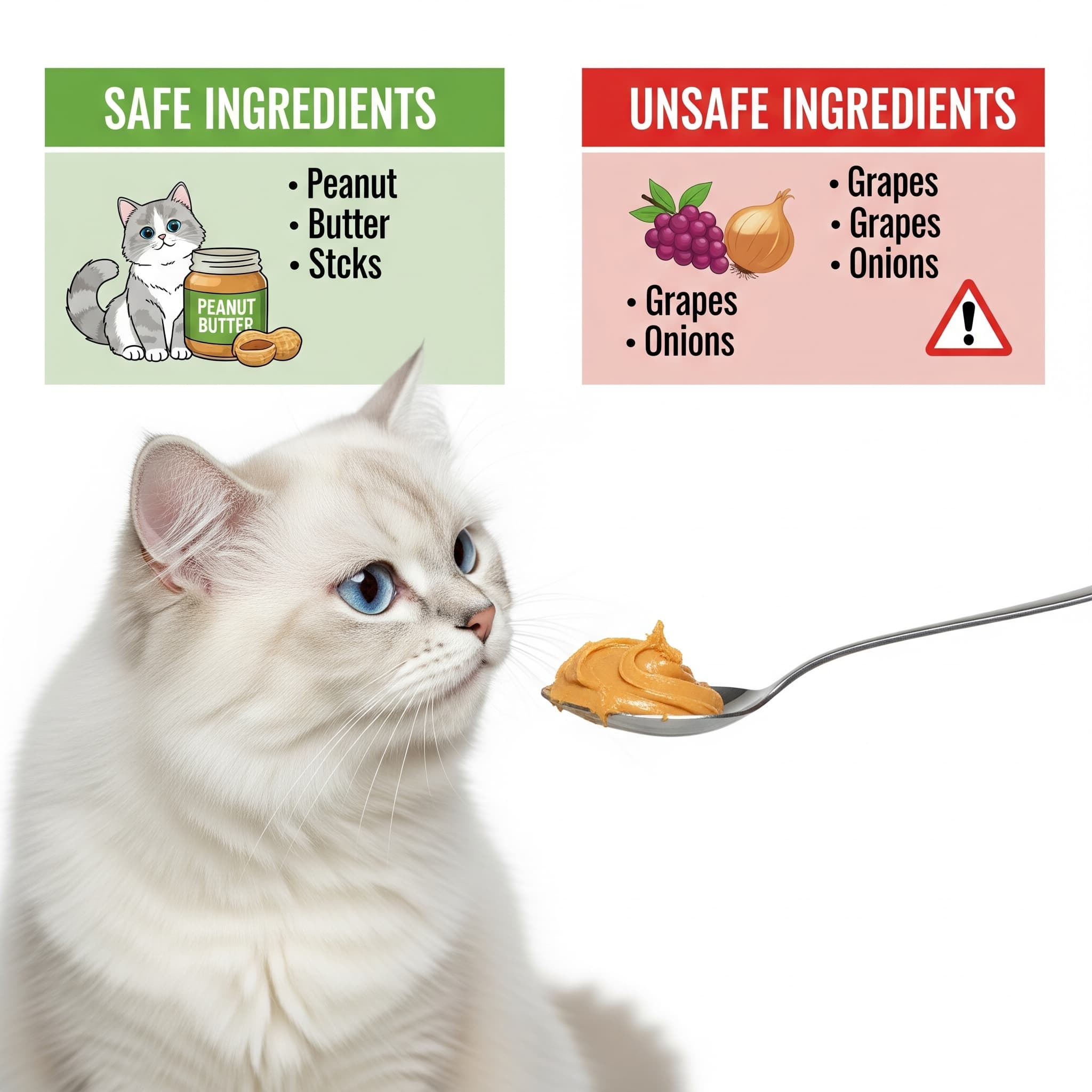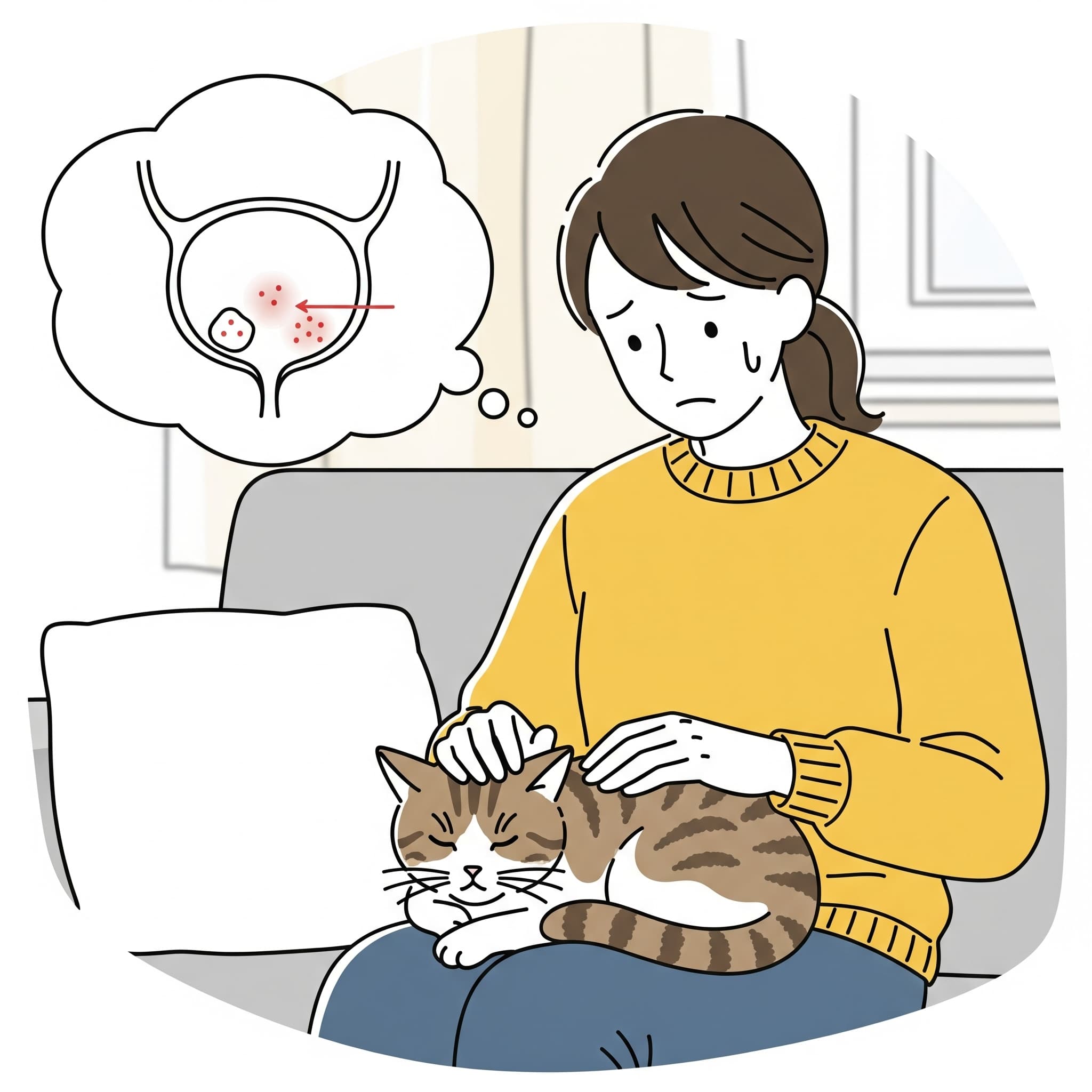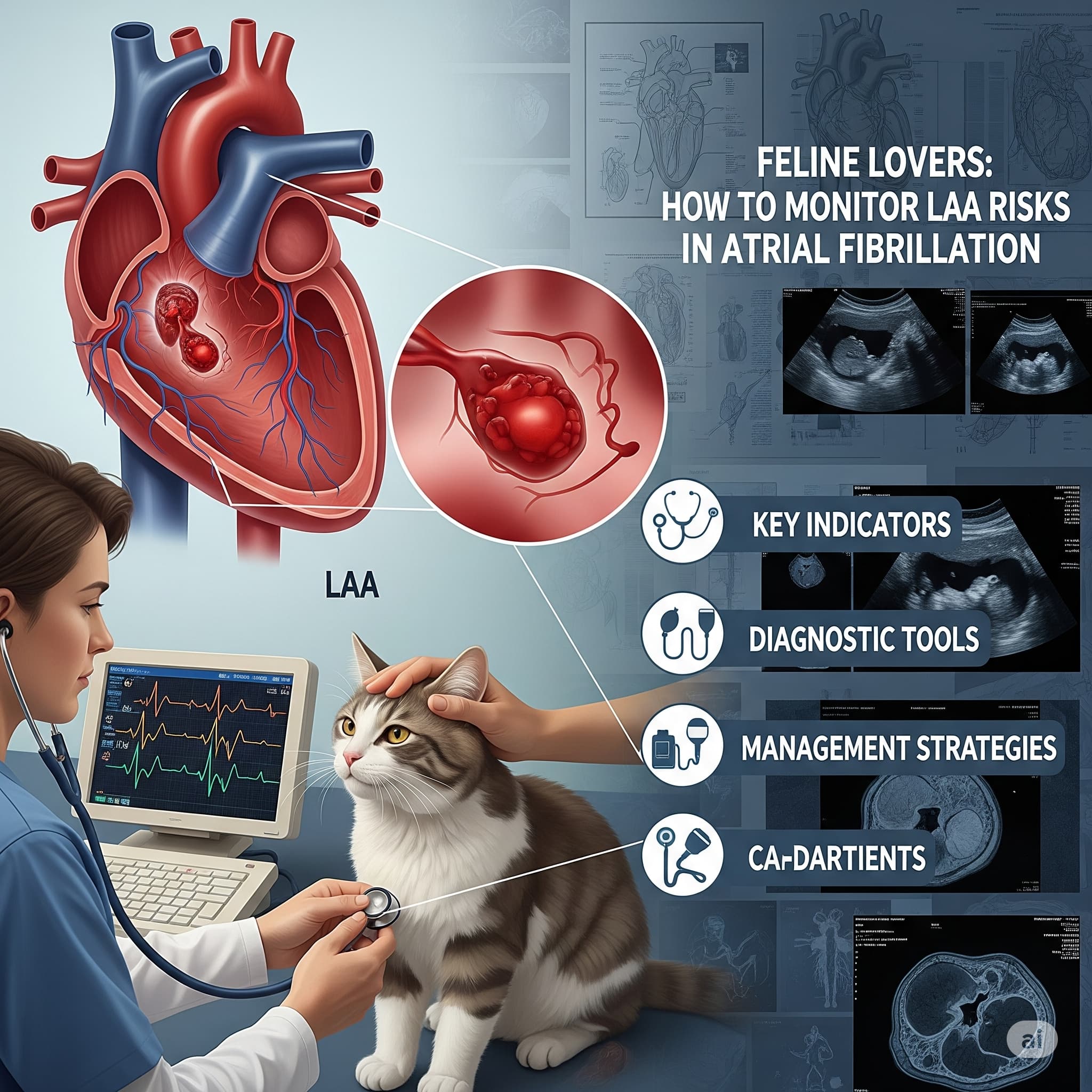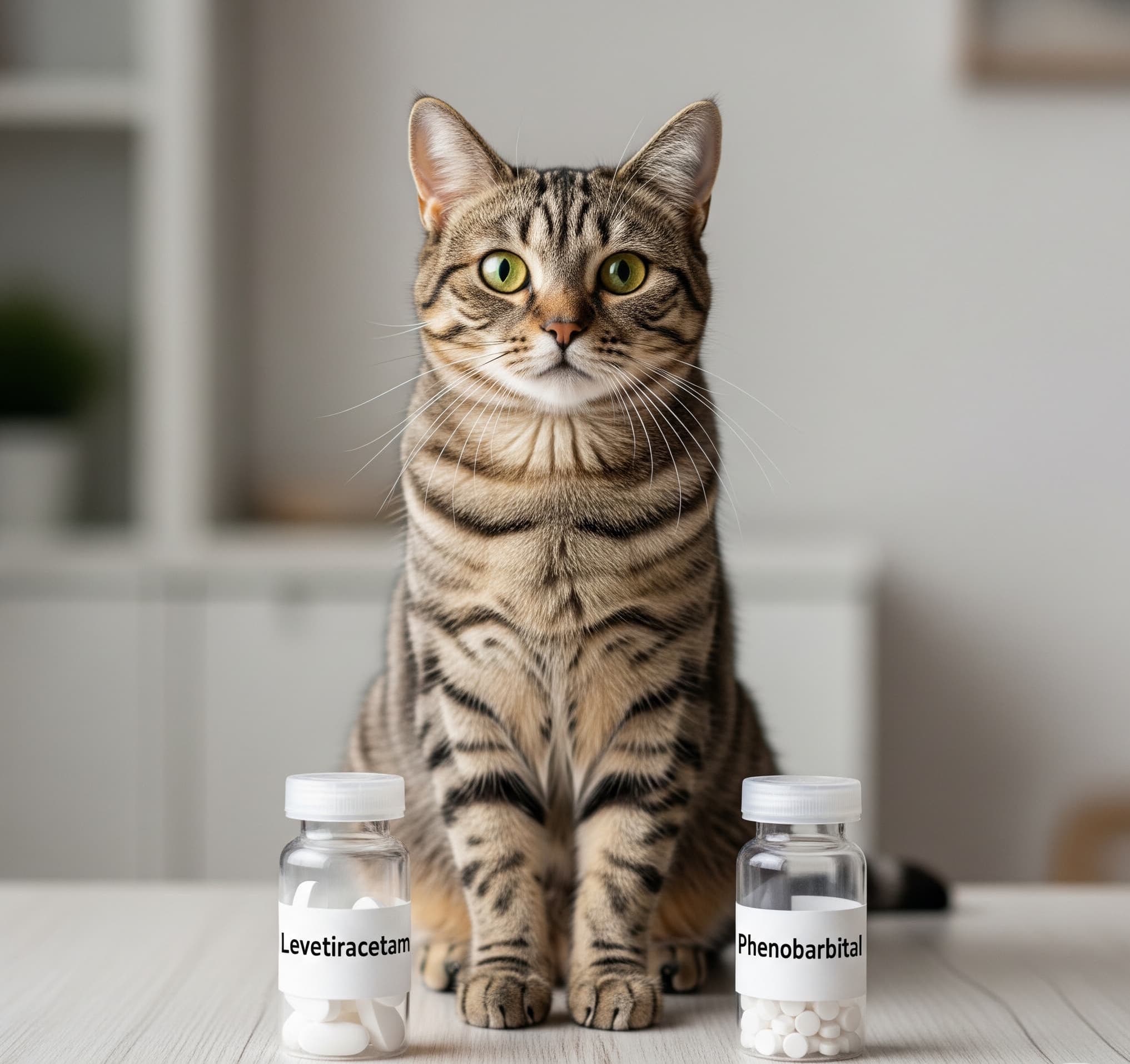Can Cats Have Peanut Butter? Safe or Dangerous?
Discover if peanut butter is safe for cats. Learn about health risks, toxic ingredients, and vet-approved alternatives for your feline friend.
Introduction
Many cat owners wonder if they can share their favorite peanut butter snack with their furry friends. While peanut butter might seem like a harmless treat, the answer isn’t as simple as you might think. Cats have very different dietary needs than humans, and what’s safe for us can sometimes be dangerous for them.
This comprehensive guide will help you understand everything about cats and peanut butter. You’ll learn about potential risks, safe alternatives, and what to do if your cat accidentally eats some.
To help you navigate this important topic, here are the key sections we’ll explore:
- Why Peanut Butter Isn’t Ideal for Cats
- Dangerous Ingredients to Watch Out For
- Health Risks and Warning Signs
- Safe Alternatives Your Cat Will Love
- Frequently Asked Questions
Why Peanut Butter Isn’t Ideal for Cats
Cats are obligate carnivores. This means their bodies are designed to get nutrition from meat, not plant-based foods like peanuts. While a tiny amount of peanut butter probably won’t hurt most cats, it offers no nutritional benefits.
Peanut butter is extremely high in fat. Cats need some fat in their diet, but too much can cause stomach upset and weight gain. A single tablespoon contains about 8 grams of fat, which is far too much for a small cat.
The texture can also be problematic. Peanut butter is thick and sticky. It can get stuck in your cat’s mouth or throat, creating a choking hazard. Cats don’t chew their food the same way humans do, making this risk even greater.
Most importantly, cats simply don’t need peanut butter. Their regular cat food provides all the nutrients they require for good health.
Dangerous Ingredients to Watch Out For
The biggest concern with peanut butter is xylitol. This artificial sweetener is extremely toxic to cats and dogs. Even small amounts can cause life-threatening drops in blood sugar and liver damage.
Many sugar-free and “reduced calorie” peanut butters contain xylitol. Always check the ingredient list before giving any human food to your cat. If a product contains xylitol, keep it far away from your pets.
Regular peanut butter also contains added salt and sugar. Cats don’t need extra sodium in their diet. Too much salt can lead to dehydration and kidney problems over time.
Some peanut butters include chocolate chips or cocoa powder. Chocolate is toxic to cats and should never be given to them under any circumstances.
Added oils and preservatives in commercial peanut butter can also upset your cat’s digestive system.
Health Risks and Warning Signs
If your cat eats peanut butter, watch for these warning signs. Vomiting and diarrhea are the most common reactions. These usually happen within a few hours of eating.
Lethargy and loss of appetite can indicate your cat isn’t feeling well. If your normally active cat seems tired or won’t eat their regular food, contact your vet.
Signs of xylitol poisoning include weakness, loss of coordination, and collapse. These symptoms require immediate emergency veterinary care. Don’t wait to see if your cat gets better on their own.
Difficulty breathing or excessive drooling might mean peanut butter is stuck in your cat’s throat. This is a medical emergency that needs professional help right away.
Some cats may develop pancreatitis from eating high-fat foods. Symptoms include severe vomiting, stomach pain, and refusing to eat. This condition requires veterinary treatment.
Safe Alternatives Your Cat Will Love
Instead of peanut butter, try these cat-safe treats. Small pieces of cooked chicken or fish make excellent rewards. Make sure the meat has no bones, seasoning, or added oils.
Freeze-dried meat treats are convenient and cats love them. Look for single-ingredient products made specifically for cats.
Catnip and cat grass provide safe entertainment and enrichment. Many cats enjoy the smell and taste of these plants.
Commercial cat treats are formulated for feline nutrition. They come in many flavors and textures to suit different preferences.
If you want to give your cat something special, try a small amount of plain cooked pumpkin. Many cats enjoy the taste, and it can help with digestion.
Frequently Asked Questions
What should I do if my cat ate peanut butter?
Don’t panic if your cat had a small lick of regular peanut butter. Monitor them for any unusual symptoms. If they ate a large amount or if the peanut butter contained xylitol, contact your vet immediately.
Can kittens have peanut butter?
No, kittens should never have peanut butter. Their digestive systems are even more sensitive than adult cats. Stick to kitten-specific food and treats.
Is almond butter safer than peanut butter?
Almond butter has similar problems to peanut butter. It’s high in fat and offers no nutritional benefits for cats. It’s better to avoid all nut butters.
Conclusion
While cats can technically survive eating small amounts of peanut butter, it’s not recommended. The risks outweigh any potential benefits, especially when so many safe alternatives exist.
Remember that cats have unique dietary needs. What seems like a harmless treat to us might cause serious health problems for them. When in doubt, stick to foods made specifically for cats.
Keep peanut butter and other human foods safely stored away from curious cats. Focus on providing high-quality cat food and appropriate treats designed for feline health and happiness.
Have you ever caught your cat trying to sneak human food? Share your experiences in the comments below, and don’t forget to subscribe to our newsletter for more pet safety tips!




Post Comment